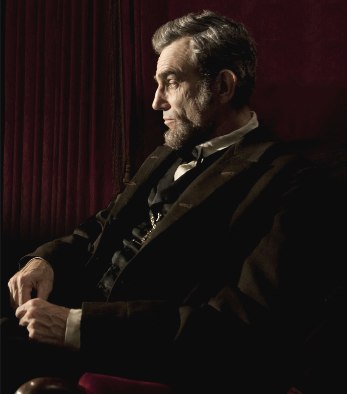Historian and author Doris Kearns Goodwin knows presidents. The Pulitzer Prize winning biographer has written on the Kennedys, Johnson, Franklin Roosevelt and her book on Lincoln, Team of Rivals: The Political Genius of Abraham Lincoln was the source material for Steven Spielberg’s latest film.

Washington Post writer Lillian Cunningham recently asked Goodwin for her thoughts on presidential leadership.
W.P.: “You’ve done several interviews lately about Abraham Lincoln in light of the film’s premiere. What’s been on your mind about Lincoln and leadership that no one has yet asked you?”
Goodwin: “One thing that’s so important about his leadership is that he had an extraordinary sense of timing. I think for all leaders that’s a key thing — when to make what decisions — and it depends on, in part, having a feeling for the popular sentiment of the country at the moment. In Lincoln’s case, he later said that had the issue of the Emancipation Proclamation come up six months earlier, he would have lost the border states. And if he had waited any longer than he did, he would have lost the morale boost that it provided and the extraordinary contribution that the African American soldiers made in the Army. …
“Similarly, Franklin Roosevelt just had an extraordinary sense of timing too. In February 1942, when things were so low after Pearl Harbor, he made his famous radio address called the map speech, where he told everyone to get a map and place it in front of them and he would go over the battles. He was so effective that thousands of telegrams came into the White House, saying, “You have to go on the radio every day in order to sustain morale.” But he said, if speeches ever become routine, they will lose their effectiveness. He knew exactly when to time those. He only gave 35 fireside chats in his 12 years as president.”
W.P.: “How has your study of Lincoln shaped the way you think of your own leadership style and character?”
Goodwin: Each one of these dead presidents I’ve lived with, they each have an impact in a different way. I think what was most striking about Lincoln was not even so much his public leadership as his emotional intelligence and his temperament. When you’re in his presence, somehow you just keep wishing you could be more like him. Instead of obsessing about something that happened in the past, you could just allow it to go away. Or instead of trying to retaliate against someone who hurt you, just not think about them anymore and know that, as he said, your opponents today may be your allies tomorrow. …”
W.P.: “Do you think that the study of leadership is by definition the study of history? Are they inextricably bound?”
Goodwin: “I think to some extent they are. Even if you’re studying the leadership of a CEO, you’re studying his experience of leading that company over a certain period of time, even though it may not be 100 years ago, it may be five or 10 years ago. But certainly for presidential leadership, what’s rewarding for me as I move from one president to another is that you do see traits in one president that another president might share. Some universal traits I’ve seen in these leaders when I’ve looked at them over time are the ability to trust people within their inner circle, the ability to communicate with stories or metaphors or language that’s understandable, the ability to acknowledge errors and the ability to learn from mistakes.”
From an ethical standpoint, all good leaders must, to a great extent, give consideration to stakeholders in their decision-making. In considering choices, they need to first Clarify: determine what must be decided; make sure they have the necessary facts, and formulate alternatives.
Second, Evaluate: separate facts from assumptions, opinions and predictions; consider the credibility of information before them.
Third, Decide: make judgments about what is true and not true and the likely consequences of their decisions.
Fourth, implement: develop a plan to maximize the benefits and minimize the costs and risks to stakeholders.
Fifth, and perhaps most importantly, they need to Monitor and Modify, if necessary: a good leader is willing to alter a plan based on new information.
What made Lincoln particularly great was his capacity to listen to others, even the rivals in his own cabinet. And he never held a grudge. Despite incredible hatred from the South, Lincoln’s chief goal was that of unity. Those final words of inclusiveness from his second Inaugural Address say more about his leadership and character than anything else:
“With malice toward none, with charity for all, with firmness in the right as God gives us to see the right, let us strive on to finish the work we are in, to bind up the nation’s wounds, to care for him who shall have borne the battle and for his widow and his orphan, to do all which may achieve and cherish a just and lasting peace among ourselves and with all nations.”
Comments










